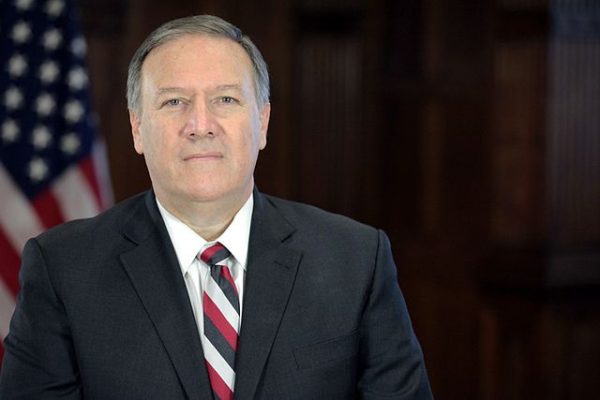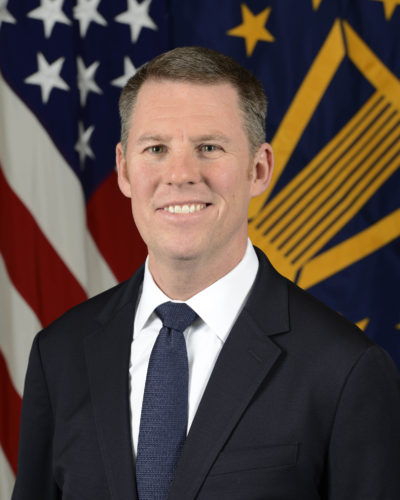Israel’s increasingly close economic ties with China, its third largest trading partner, pose a problem for its chief ally, the United States.
The Trump administration, currently locked in a trade war with China, has warned Israel in recent months that its pivotal relationship with the United States could be adversely affected unless it scales back its commercial cooperation with Beijing.
The warnings have come from, among others, President Donald Trump, Secretary of State Mike Pompeo and the U.S. Senate.

Last March, around the time that Trump asked Prime Minister Benjamin Netanyahu to curb Israel’s links with China, Pompeo sounded a similar warning, saying the United States might reduce “intelligence sharing” with Israel if it did not accede to Washington’s request.
John Bolton, then Trump’s national security advisor, conveyed the same message to Israel.
Israel is acutely aware of American misgivings. Top-level Israeli official have raised concerns about this sensitive issue, which basically revolves around China’s role in building and maintaining Israel’s national infrastructure. China companies, for example, are currently involved in constructing a light rail system in Tel Aviv.

Nadav Argaman the director of the Shin Bet domestic intelligence agency, issued a recent warning that massive Chinese investment in Israel could jeopardize its national security. “Chinese influence in Israel is particularly dangerous in terms of strategic infrastructure and investment,” he said, advising the Knesset to pass legislation to monitor foreign investment in the country.
He was referring to one case in particular: Israel’s decision in 2015 to permit the Chinese government-owned Shanghai International Port Group to manage part of Haifa’s port for 25 years from 2021 onward.

Israel’s Foreign Ministry has also addressed this issue. Two-and-a-half months ago, in a report sent to the Israeli cabinet, it warned that Israel could be heading toward a confrontation with the United States unless tight restrictions are imposed on China’s investments in Israel.
As a result, Netanyahu instructed the Foreign Ministry, the Finance Ministry and Israel’s ambassador to the U.S., Ron Dermer, to devise a plan to balance its interests with the United States and China.
Israel greatly values its relations with the United States, which have reached new heights under the Trump administration. Since 2017, Trump has recognized Jerusalem as Israel’s capital, moved the U.S. embassy from Tel Aviv to Jerusalem, recognized Israel’s sovereignty over the Golan Heights, vetoed a succession of United Nations resolutions critical of Israel, and ordered the closure of the Palestine Liberation Organization’s mission in Washington, D.C.
By the same token, Israel seeks to upgrade its bilateral relations with China, which is challenging the United States’ supremacy as a world power. Israel was the first country to recognize the new Communist regime in China, but the Chinese government did not appreciate the gesture. China was hostile to Israel until formal diplomatic relations were established in 1992.
Since then, Chinese companies have made some substantial investments in the Israeli economy. In 2014, in one of China’s most important moves, a Chinese firm bought a controlling stake in Tnuva, Israel’s largest dairy, for more than $1 billion. And now, despite China’s continuing support for anti-Israel resolutions at the United Nations, China and Israel are trying to reach an agreement on a free-trade pact.
In the meantime, trade is booming. Since the early 1990s, the annual volume of trade between Israel and China has rocketed from $50 million to more than $18 billion.
Washington’s anxiety about Israel’s growing relations with China was articulated recently by Michael Mulroy, the deputy assistant secretary of defence for the Middle East.

“While we are not asking Israel to avoid dealing with China entirely, we have open discussions with all our closest allies and partners on the national security implications of Chinese investment,” he said. “The openness of the U.S. and Israeli economies is a strength to our countries, but malign actors can take advantage if we are not cautious.”
The Trump administration is especially concerned that a Chinese presence in Haifa’s port would enable China to monitor U.S. ship traffic and maintenance. The U.S. Navy has already indicated it may stop sending ships from the Sixth Fleet to Haifa after 2021.
Several months ago, the U.S. Senate said it has “serious concerns” about “leasing arrangements” in the port of Haifa. The Senate urged Israel “to consider the security implications of foreign investment in Israel.”
It’s clear that Israel will have to tread carefully as it manages its relations with China and the United States.
